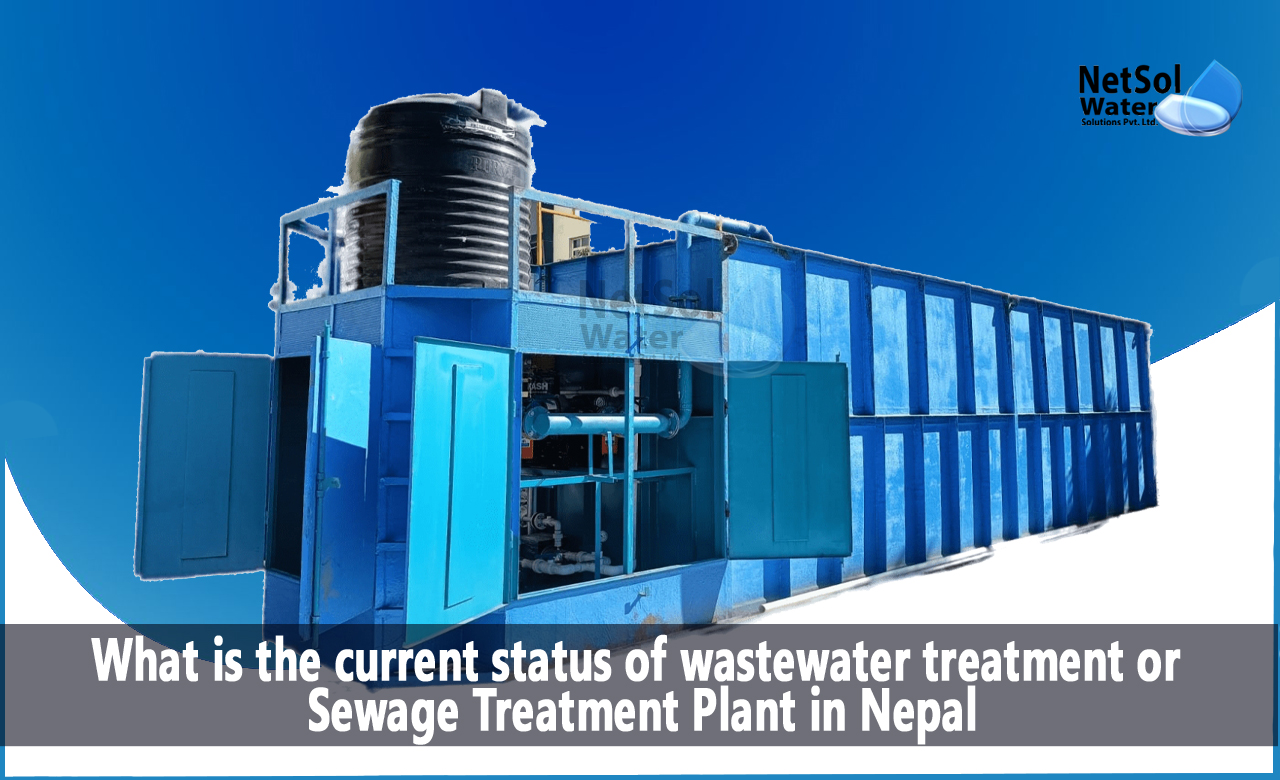What is the current status of WWT or STP Plant in Nepal?
Any country that wants to sustain its development should invest in wastewater management. The problem of wastewater treatment has come to be acute in Nepal, which is famous for its picturesque landscapes and rich culture; it has undergone rapid development, which can be traced through urbanisation and industrialisation processes. Wastewater Treatment and Sewage Treatment Plants in Nepal: An Overview of Current Status and Challenges for the Future?
The Increasing Demand for Wastewater
The populations, as well as industries, are expanding in the urban parts of Nepal rapidly. This has increased wastewater generation. Proper wastewater management is needed because wastewater can cause environmental and public health problems. This pollutes the drinking water sources at the expense of degenerating the ecosystems and spreading diseases.
Current Initiatives and Progress
In recent years, Nepal has taken several steps to improve wastewater treatment and sewage management:
Sewage Treatment Plants (STPs): Urban centres in Nepal have progressed towards building STPs. There are STPs in Kathmandu Valley alone. Some of these work well. Treatment of Sewage, Cleanup of Local Water Bodies by Plants.
Government Initiatives: The government has developed a strategy as well as policy in relation to enhancing wastewater management. One example of this approach involves the ‘Sanitation and Hygiene Master Plan’ designed to improve the sanitation and wastewater treatment infrastructure in the Mbeere area.
International Assistance: Development partner countries and international organization have helped increase wastewater treatment capacity in Nepal. These include offering financial help and technical expertise as well as imparting professional know-how.
Community Involvement: Several Communities in Nepal are now recognising the need for an efficient management wastewater system. Local initiatives and awareness campaigns have brought about the improvement of sanitation.
Challenges Ahead
Despite the progress made, Nepal still faces significant challenges in wastewater treatment and management:
Limited Coverage: Whilst many cities do have STPs yet smaller settlements as well as countryside, usually do not possess any waste water treatment plants. Wastewater management and coverage of these areas should be completed.
Aging Infrastructure: For example, some old STPs require upkeep and repairs. Old equipment may slow down efficiency, as well as affect treatment results.
Funding and Resources: The building and regular maintenance of wastewater treatment systems require a sufficient budgetary allocation with enough funds and resources. Budget limitations may hamper new infrastructure.
Public Awareness: While some efforts have been made to raise public awareness, it is needed that more effort is directed towards promoting responsible wastewater discharge practices and lowering the emissions at their source.
Climate Change Impact: Water resources and infrastructure are vulnerable in Nepal, especially concerning climate change. Wastewater Management Plans Should Incorporate Adaption Strategies.
The Way Forward
To address these challenges and improve wastewater treatment in Nepal, several actions are needed:
Investment: The investment for wastewater treatment in STP must continuously be done. Partnerships between public and private sectors may provide financial support for such projects.
Modernization and Maintenance: As such, the continued upgrading and maintenance of existing STPs will be important in continuity of benefits. Such solutions include use of more sustainable, eco-friendly or energy efficient technologies.
Capacity Building: It is crucial to develop the necessary technical expertise for a cost-effective wastewater management. Incorporating training programs and working with global experts can foster local competency.
Community Engagement: Managing waste water through community involvement in proper sanitation and hygiene is crucial in cutting down the pollution from the sources.
Climate Resilience: This includes building climate resilient infrastructure and integrating climate change adaptation measures in wastewater management planning to minimize ongoing risks.
Conclusion
Nepal has come some way towards overcoming its problems with wastewater treatment; nevertheless, there is still much to do. The government, along with international partners, communities, and the private sector, must continue their efforts to expand wastewater treatment coverage, upgrade existing facilities, and promote responsible wastewater disposal practices. With sustained commitment and investment, Nepal can work towards achieving effective and sustainable wastewater management to benefit its environment and people.
Netsol Water is Greater Noida-based leading water & wastewater treatment plant manufacturer. We are industry's most demanding company based on client review and work quality. We are known as best commercial RO plant manufacturers, industrial RO plant manufacturer, sewage treatment plant manufacturer, Water Softener Plant Manufacturers and effluent treatment plant manufacturers. Apart from this 24x7 customer support is our USP. Call on +91-9650608473, or write us at enquiry@netsolwater.com for any support, inquiry or product-purchase related query.



